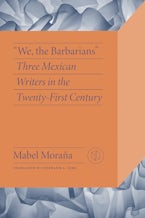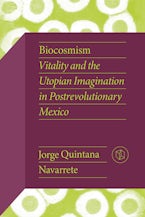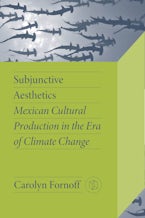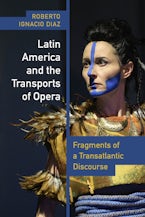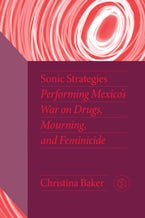- Home
- The End of the Future
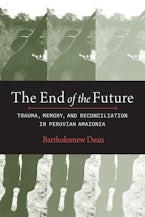
The End of the Future
Trauma, Memory, and Reconciliation in Peruvian Amazonia
Foreword by Manuel Burga
In The End of the Future, author Bartholomew Dean broadens the theoretical framework for understanding memory's role in reconciliation following a violent conflict. This book explores the complicated and confusing linkages between memory and trauma for individuals caught up in civil war and post-conflict reconciliation in the Peruvian Amazon's Huallaga Valley—an epicenter for leftist rebels and a booming shadow economy based on the extraction and circulation of cocaine. The End of the Future tells the story of violent attempts by the Túpac Amaru Revolutionary Movement (Movimiento Revolucionario Túpac Amaru, MRTA) to overthrow the state in the late 1980s and early 1990s from the perspective of the poorest residents of the lower Huallaga's Caynarachi Basin.
To give context to the causes and consequences of the MRTA's presence in the lower and central Huallaga, this book relies on the written works and testimony of Sístero García Torres, an MRTA rebel commander; the government's Truth and Reconciliation Commission; MRTA propaganda; media accounts; and critical historical texts. Besides exposing Huallaga Valley human rights abuses, the book's contribution to political anthropology is consequential for its insistence that reconciliation is by no means equivalent to local, Indigenous notions of "justice" or customary forms of dispute resolution. Without deliberately addressing the diverse socio-cultural contours defining overlapping epistemologies of justice, freedom, and communal well-being, enduring reconciliation will likely remain elusive.
To give context to the causes and consequences of the MRTA's presence in the lower and central Huallaga, this book relies on the written works and testimony of Sístero García Torres, an MRTA rebel commander; the government's Truth and Reconciliation Commission; MRTA propaganda; media accounts; and critical historical texts. Besides exposing Huallaga Valley human rights abuses, the book's contribution to political anthropology is consequential for its insistence that reconciliation is by no means equivalent to local, Indigenous notions of "justice" or customary forms of dispute resolution. Without deliberately addressing the diverse socio-cultural contours defining overlapping epistemologies of justice, freedom, and communal well-being, enduring reconciliation will likely remain elusive.
Acknowledgments
Foreword by Manuel Burga
List of Illustrations
Introduction. Narrative Renditions of Ugly Times: Memory, Violence, and Trauma in Peruvian Amazonia
Chapter 1. The Ugly Times of War
Chapter 2. In Search of the Rebel
Chapter 3. War Taxes: Cupos
Chapter 4. Túpac Amaru Libertador
Chapter 5. Forest Encounters
Chapter 6. Discipline: Law & Disorder
Chapter 7. White Gold
Chapter 8. Attack on the “Pearl of the Huallaga”
Chapter 9. The End of the Future: El Porvenir
Chapter 10. Memory, Silence & the Narration of Violence
Conclusion: Partisan Anthropology, Empathy, and Reconciliation
Notes
References
Index
Foreword by Manuel Burga
List of Illustrations
Introduction. Narrative Renditions of Ugly Times: Memory, Violence, and Trauma in Peruvian Amazonia
Chapter 1. The Ugly Times of War
Chapter 2. In Search of the Rebel
Chapter 3. War Taxes: Cupos
Chapter 4. Túpac Amaru Libertador
Chapter 5. Forest Encounters
Chapter 6. Discipline: Law & Disorder
Chapter 7. White Gold
Chapter 8. Attack on the “Pearl of the Huallaga”
Chapter 9. The End of the Future: El Porvenir
Chapter 10. Memory, Silence & the Narration of Violence
Conclusion: Partisan Anthropology, Empathy, and Reconciliation
Notes
References
Index
Bartholomew Dean is a professor of anthropology at the University of Kansas.
"The End of the Future is a meticulously detailed study foregrounding the rural Peruvians who experienced this tragic and, at times, gruesomely violent period as they sought a more just social order far from the nation's centers of power. An invaluable complement to studies of the better known crusade of the Communist Party of Peru—Shining Path."
—Michael F. Brown, author of Upriver: The Turbulent Life and Times of an Amazonian People
"Chronicling the little-known yet gripping story of the MRTA rebels' war in the Peruvian Amazon with admirable humanity and tremendous insight, Dean shows how the horrors of what locals call those 'ugly times' still haunt the living despite the pieties about healing and reconciliation."
—Orin Starn, coauthor of The Shining Path: Love, Madness, and Revolution in the Andes


